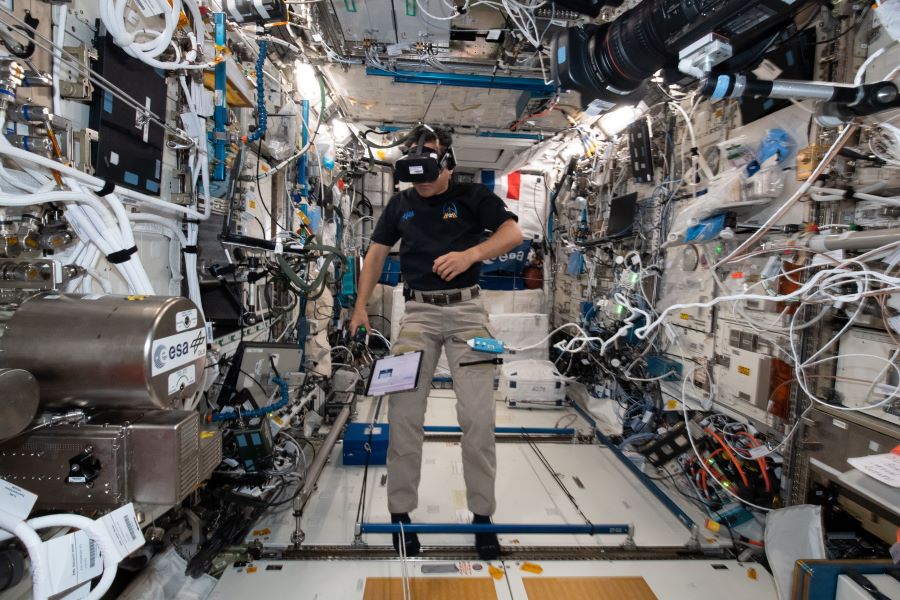Time Perception, Immersive Exercise, and Nanoparticles Rule the Day

Wednesday’s activities aboard the International Space Station remained focused on science and maintenance. In preparation of Russia’s Multipurpose Laboratory Module docking to the outpost the following day, July 29, Russian Cosmonaut Oleg Novitskiy located and gathered equipment to set up temporary ventilation for the 43-foot long, 23-ton module. Live coverage of tomorrow’s event begins at 8:30 a.m. EDT on NASA Television, the NASA app, and the agency’s website.
Commander Akihiko Hoshide of the Japan Aerospace Exploration Agency (JAXA) and ESA (European Space Agency) astronaut Thomas Pesquet took turns participating in a study that explores how astronauts perceive time in microgravity, which can impact physical and cognitive performance. Pesquet, along with NASA Flight Engineers Mark Vande Hei and Shane Kimbrough, continued operations for the Investigating the Structure of Paramagnetic Aggregates from Colloidal Ellipsoids, or InSPACE-4. This physics study investigates ways to produce high-quality protein crystals in microgravity to benefit pharmaceutical and biotechnology industries on Earth.
Astronauts exercise two hours a day to help compensate for the loss of bone and muscle mass from living and working in weightlessness. However, their daily workout can quickly become repetitive in the closed and unchanging environment, leading to lack of motivation. The Immersive Exercise project aims to break the monotony with virtual reality (VR). In support of the first experiment session, Pesquet retrieved all the equipment and successfully completed the session by exercising on the bike with a VR headset.
Space gardening is key to sustaining human spaceflight as NASA and its international partners plan future missions to the Moon, Mars, and beyond. NASA Flight Engineer Megan McArthur and Kimbrough continued to work on the Plant Water Management study, an investigation that demonstrates how to operate hydroponics in microgravity. The duo conducted operations, set up, and configured hardware for the botany study that, eventually, may also improve watering systems on Earth.
Meanwhile, two astronauts worked on maintenance activities. Hoshide replaced holder and installed cartridges on the Electrostatic Levitation Furnace (ELF) developed by JAXA. The ELF is a facility for materials science that melts levitating materials with a very high melting point, measures their properties, and solidifies them from a super-cooled state by taking advantage of the microgravity environment. In addition, Pesquet added ice bricks into the ESA-built Minus Eighty Laboratory Freezer, or MELFI, for the space station. The ice bricks provide cooling, or incubation, to the samples stored inside double-cold bags, which are insulated stowage bags used to transport samples to and from the orbiting laboratory.
from Space Station https://ift.tt/3f6FtXY
Comments
Post a Comment